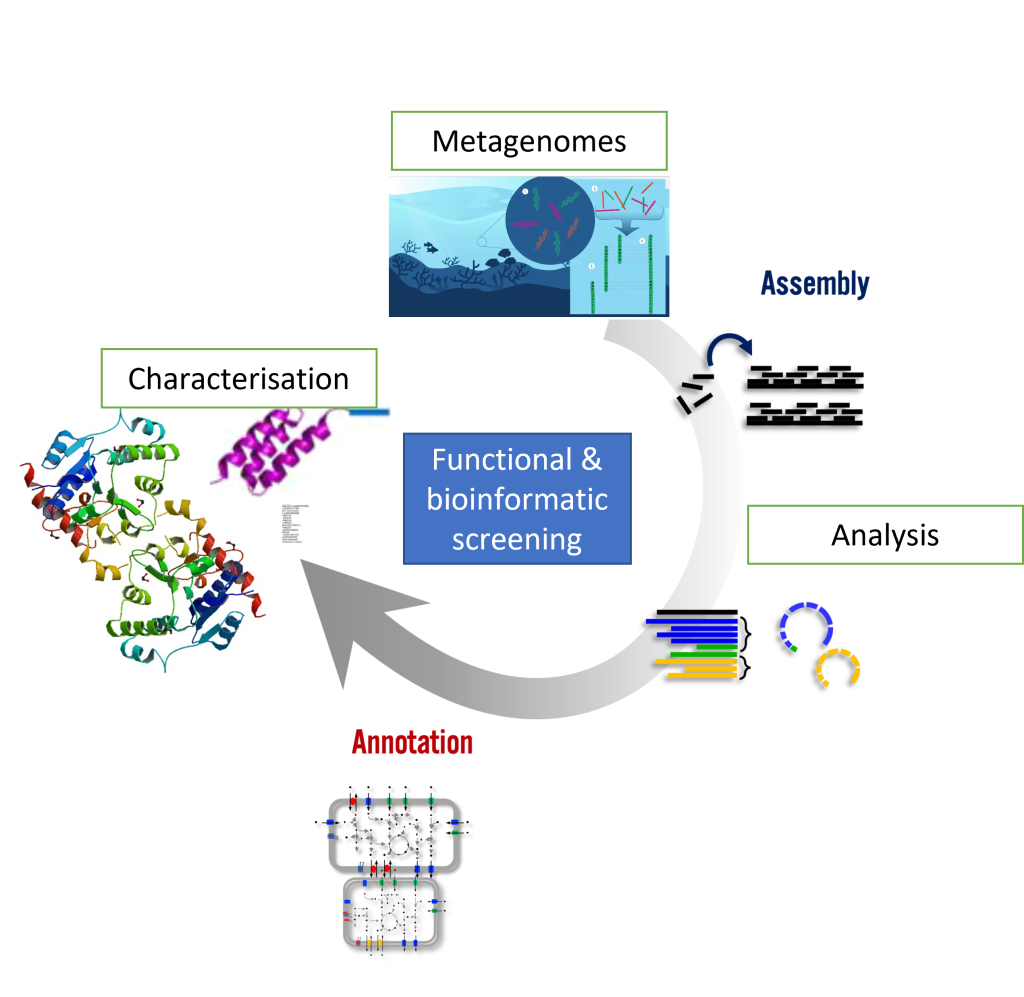Project No. 2440
PRIORITY PROJECT
Primary Supervisor
Dr Seung Lee – University of Southampton
Co-Supervisor(s)
Dr Bruce Lichtenstein – University of Portsmouth
Prof Andy Pickford – University of Portsmouth
Summary
Metagenomes are the abundant genetic resources present in uncultured microorganisms.
They are composed of genomic DNA directly isolated from environmental samples. Metagenomic libraries are thus rich in genetic material and offer a great opportunity of discovering interesting genes. Securing genes is a key element in synthetic biology and its application in industrial biotechnology.
This project aims to mine genes for industrially important enzyme activities in metagenomes of unusual environments. Metagenomes from unusual or harsh environments are likely to contain robust, rare or non-typical genes, and for this project, metagenomes from deep ocean, pelagic ocean and polluted areas will be screened. Our initial screening will be sequence-based. Most of metagenomes for this project have been sequenced, and these will undergo search for enzymes of interest using BLASTP and PSI-BLAST. Four enzyme activities are of interest in this project: cellulase, xylanase, tagatose-3-epimerase and imine reductase. The first two enzymes are important polysaccharide hydrolysing enzymes that break down plant macromolecules to smaller carbohydrates for use in manufacture of paper industry and biofuels. Tagatose-3-epimerase catalyses the conversion of D-fructose to D-allulose, which is gaining popularity as a sweetener replacement. Its demand is increasing in industrial biotechnology. Imine reductase catalyses reductive amination, which is a useful reaction during conversion of a carbonyl group into an amine. Once sequences with sufficient scores in BLAST or PSI-BLAST are identified, the genes will be cloned or synthesised, and encoded proteins expressed and tested using in-house developed assay methods. Production of hits will be tested using Yeast and endo-toxin free E. coli.
This project develops key technology in synthetic biology for important industrial application and is perfectly aligned with the current UK’s main research theme of Engineering Biology.
The project does not require specific chemistry or biological science skill in a candidate. Training of highly multidisciplinary techniques will be provided.

